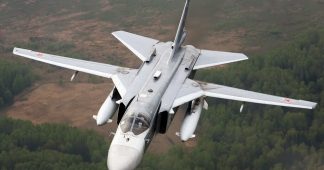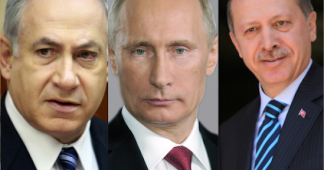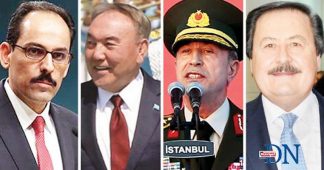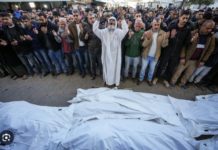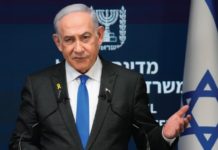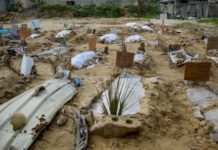By Elena Sharoikina, journalist/ecologist
We live in amazing times. Every day something happens around us that even yesterday seemed completely unthinkable.
Firearms mixed with burgers are printed pell-mell on 3D-printers, genetically modified mosquitoes fight the Zika virus, hunting virtual Pokemons can bring real visitors in uniform knocking at one’s door.
International news agencies pull their fair weight in erasing borders between dreams and reality too.
Who could imagine that the president of the Philippines Rodrigo Duterte would get off scot-free after publicly insulting the President of the United States, or that Russian Aerospace forces would be chasing American jets in the skies of the Middle East? That Barak Obama would be denied a ramp for exiting from his aircraft when he landed in China, or that Vladimir Putin would be invited to sit in the throne of Byzantine emperors during his visit to Afon?
Nowadays we observe impressive commotion around Turkey as well.
Ankara, for a long time one of Washington’s most devoted allies, is now dreaming of a re-birth of the Ottoman Empire and is actually in the midst of a divorce process from its NATO partners. The details of this family drama with its plots, political assassinations, espionage and takeovers, are reminiscent of a geopolitical detective novel.
An excellent documentary “Turkey: the takeover” was aired in August this year on the Tsargrad channel.
Turkish president Recep Tayyip Erdogan fell from grace with his Washington bosses after he started showing too much independence in foreign affairs, clashed with Israel and tried to break the Palestinian siege by supporting the Gaza Freedom Flotilia.
The Turkish leader’s anti-Israeli speech in Davos in 2009, was for many Muslims to be ranked more or less with Vladimir Putin’s famous speech at the Munich Security Conference in 2007.
Like the Russian president, Mr. Erdogan did not shrink from challenging the existing status-quo, claiming for Ankara the status of leader of the Muslim world. From the point of view of the Western elite, both of these politicians have signed their own death warrants with such declarations.
The Bolotnaya square in Moscow and riots in Gezi park, Istanbul, organized by the promoters of colour revolutions, were not long in coming.
Since then Erdogan and Putin have often been compared with each other. The Turks say that their leader is flattered by such parallels. Although Mr. Erdogan has never admitted as much in public, in many of his governmental decisions he often seems to be following the example of his Russian colleague.
Even the collapse of the relations brought about by the tragic death of our pilot on the Syrian-Turkish border, accompanied by emotional statements from both sides, is difficult to understand completely without considering the interpersonal relations between the two politicians and Erdogan’s desire to emulate Putin.
After the failed takeover in Turkey and the resumption of relations with Russia in August 2016, Western and Arabic mass media started to publish leaks on secret agreements between Putin and Erdogan to normalize the situation in Syria at the expense of US interests.
When we see on the news Turkish tanks on the move in Syrian territory, and the next report mentions the resumption of Russian charter flights to Turkey, there can no longer be any doubt that these assumptions are well grounded.
This means that Erdogan, already rather uncomfortable for the West, is becoming even more so.
When too much depends on one person, there is always a temptation to solve the problem by liquidating the individual in question. Whatever might happen now – another takeover, a suicide bomber from ISIS* or a sudden illness due to “natural causes” – in any case the life of the Turkish president may be in great danger.
This makes me think of a strange conversation that took place at the Food Security conference in China in 2014.
I was giving a presentation on the regulations on GMO use in Russia and the plans of our government to completely prohibit any use of GM seeds. The audience greeted this with enthusiastic applause and then, during the break, one of the organizers, a biologist from Beijing, approached me for a talk.
He said that he admires Vladimir Putin’s position on many issues, including the prohibition of GMOs in Russia. However, he also asked “whether he’s not afraid of being infected by cancer, in the same way as the US did to Erdogan”.
It seemed to me unbelievable then, but, as it turned out later, the hypotheses on “biotechnological weapons” developed in the USA have been under discussion by diplomats and scientists for a long time.
The president of Venezuela Hugo Chavez repeatedly warned that he and a number of other “misfit” leaders of South-American countries could be “infected with oncological diseases on purpose”. Names mentioned included the presidents of Brazil Luiz Inácio Lula da Silva and Dilma Rousseff, the president of Paraguay Fernando Lugo, the presidents of Argentina Nestor Kirchner and Colombia Juan Manuel Santos.
In Turkey it is also assumed that Erdogan’s illness is probably linked to the confrontation with “outer forces” that started in 2009.
It is probably due to these suspicions that foreign doctors are not allowed to treat the Turkish leader (while officially Ankara denies that the head of state is experiencing any health problems).
In the Wikileaks secret files there are some really strange tasks being given by Washington to its embassies – such as obtaining samples of some foreign politicians’ DNA. Some experts think that such biomaterial can be used by the USA to develop “personalized oncogenes”.
I would like to draw your attention to one important detail. The National Laboratory for Cancer Research at the U.S. National Cancer Institute is located in Fort-Detriсk, Maryland, the United States Army Medical Command installation, which is also home to the National Interagency Confederation for Biological Research and National Interagency Biodefense, where biological warfare programs and military medical research are carried out.
Close connection of the biggest Western scientific centers studying precision medicine, as well as biotechnological and pharmaceutical giants, to the US military industrial complex cannot but appear suspicious.
Alexander Kanapin, the Computational Genomics Head at the Department of Oncology, University of Oxford, warns that rapid progress in the field of bioinformatics and gene engineering is drawing attention to bio-security and “biological digital sovereignty”.
So, to return to the starting point of this article, I reiterate that nothing should be surprising today.
The oncology weapon could be a reality or it could merely be propaganda, aimed at reinforcing the US image of being a superpower and intimidating potentially rebellious leaders of countries who do not accept today’s world order. But the former and the latter are not mutually exclusive.
It is to be hoped that Erdogan is suitably aware that in the current situation his physical survival is contingent on the will of God and the good favor of Mr. Putin.
Having said which, it might now be appropriate to turn our attention to President Rodrigo Duterte and the state of HIS health.
*ISIS – a terrorist organization outlawed in the Russian Federation
